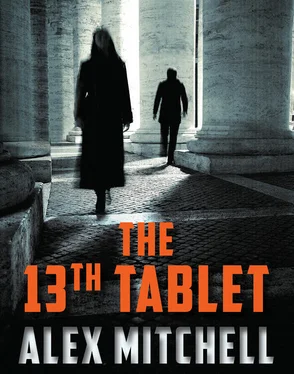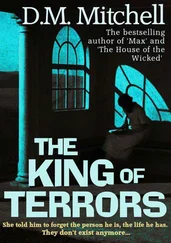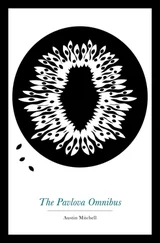When they finally entered the city, Jack parked the jeep near the US army base and told her they would have to walk from there, as it was impossible to drive through the narrow streets of old Mosul. They moved at an easy pace through the maze of medieval streets.
As they walked, Mina showed Jack various architectural remnants of Mosul’s past glory. She told him about the farreaching origins of the city, then called Nineveh, and known in texts as a place of worship of Ishtar, the Babylonian goddess of sex and war. Back in 1800 B.C.E. the goddess’s temple was crammed with ‘sacred prostitutes’ offering their services to the city’s male devotees. She told him about King Sennacherib, who transformed Nineveh into the new lush capital of Assyria around 700 B.C.E. She recounted the extraordinary discovery in the 19th century of the Library of Ashurbanipal, which contained hundreds of tablets, including the Standard Akkadian Epic of Gilgamesh. The tablets found in this library were still the subject of research today.
‘Look at this door Jack. You see how the stone threshold doesn’t seem to fit?’
‘Yes?’
‘It’s a marble slab, probably dating to the 13th century or even earlier. If you were to turn it over, you might find a cross, or something like that.’
‘Where did it come from?’
‘Probably from one of the many Armenian churches you’ll find in Mosul.’
‘Many of the local buildings were constructed with material from ancient Roman and Early Christian monuments, which were carved and re-used in a Muslim context.’
‘So Christians were here before Islam?’
‘Oh yes! Most of Nineveh’s pagan inhabitants converted to Christianity. There were also synagogues and temples of all sorts long before the Muslims came into the picture. I suppose all this is long forgotten.’
‘I had no idea.’
‘Today the population is a strange mixture of Kurds, a large minority of Aramaic-speaking Christian Assyrians, and a smaller minority of Turcoman.’
‘That I do know. It’s funny how they all seem to live together today, working together, intermarrying. I was a little surprised when I first arrived. We have such a warped impression of this place back home, you know, as if the city was teeming with Islamic terrorists.’
‘Which home is that Jack?’
‘West Virginia. Couldn’t you tell from my accent?’
‘No. You seem to have lost all trace of it. How?’
‘I studied hard.’
‘Engineering?’
‘Yes and other things. Ah. Here we are.’
They entered a down trodden street, where crippled houses leaned one against the other, their front doors seeming to sink into the ground. Hassan had not been wrong in his description. She could just imagine the labourer leaving his village in the hope of finding work in Mosul and ending up in this miserable area, surviving among numerous family members huddled together in tiny rooms.
As they arrived at the house described by Hassan, Mina turned to Jack.
‘By the way, you said to Muhad you’d be away for a week or two.’
‘Yes?’
‘Are you thinking of taking a vacation in Mosul?’
‘No,’ he laughed. ‘I received a call the other day and need to sort out a few things.’
‘I see. That’s a very Jack-like answer: to the point, yet utterly vague.’
She didn’t wait for a further explanation and knocked on the door. An old woman peered out shyly. Mina explained who she was, and after much smiling and comforting words, the old lady let them in. She turned out to be the labourer’s sister and after she had fetched him, they sat down for tea. Mina never failed to be moved by Middle Eastern hospitality. In this poverty-stricken home, where brothers, sisters, cousins and grand parents all lived in two small rooms separated by a curtain, they still offered tea to visitors.
‘You work for the university?’ the labourer asked Mina.
‘Yes. I teach there. My student Hassan showed me your tablet and I just wanted to know where you found it.’
The old man looked apprehensive, ‘He told me that I wouldn’t get into trouble’.
‘I assure you that you’re not in trouble at all. I’m asking you these questions because if I know where the tablet was found, I could learn more about it’.
‘I don’t think the man understands what you’re on about,’ Jack said to Mina.
‘There may be more similar objects where you found this one,’ she said to the man.
‘Oh no. You won’t find anything there,’ he replied.
‘What do you mean?’ asked Mina.
‘My son found the tablet in the rubble of a bombed house,’ he explained.
‘A house?’ Mina asked, trying to hide the growing excitement in her voice.
‘Yes, but I think it came from a building buried under the house which was bombed. And since then, the whole area has been bombed again.’
‘Could you show us where it was? We will pay you for your time of course,’ Mina added quickly.
‘Follow me please,’ he answered immediately.
They left the house and moved through squalid streets. Rats roamed freely and the rubbish gave off the horrendous smell of decay. They walked on and on. With each step Mina felt more uneasy. She looked at Jack, as if to say ‘I’m sorry… and I’m worried’. But his relaxed demeanour calmed her.
‘Is it much further?’ she asked.
‘Not much. We’re almost there,’ replied the labourer.
The street lead to a large open space, the size of a football field. They walked over the rubble. The old man hadn’t lied. An entire block had been razed to the ground by at least two air strikes. It was a horrific scene of destruction. Like everyone else, she had heard about the air strikes, but she had not fully realised their awesomely destructive power: they simply obliterated everything in their path.
The old man stopped, half way across the area, and pointing his finger to a spot on the ground, simply said ‘here’. She paid him for his time and he walked away, thanking God for his luck. Jack watched Mina getting down to work, rummaging among the stones. After a while, she picked up a stone, and her face changed, screwed up in intense thought.
‘What’s up Mina?’ asked Jack.
‘What’s up? I’ll tell you what’s up. Look at this,’ she said with cold fury, showing him a small piece of stone covered with inscriptions.
‘Yeah?’
‘It’s Hebrew, Jack. Hebrew.’
‘And?’ he asked again, with a look of total incomprehension.
‘It means our wonder boys up there bombed a house which must have been built over an ancient synagogue. Then they bombed it again. We won’t find anything useful now.’
She sat down on a pile of rubble, exhausted and defeated, and started to cry. Jack let her cry for a moment, then sat down beside her and put his arm around her shoulders.
‘I didn’t know you were Jewish. I had no idea.’
‘I’m not Jewish. My father’s Muslim and my mother’s Christian’, she answered between sniffles.
‘So… why are you crying?’ he asked, bewildered.
‘I’m crying because this must have been a long lost synagogue that Benjamin of Tudela described in his travels. And, as if it wasn’t enough, this was the very place that my stone tablet came from.’
‘Time out! I’m totally lost right now. You’re going to have to tell me more or nothing at all.’
‘OK. But I need to get out of here,’ she said, wiping the tears from her face.
‘Right. I know a nice cafe in the old city. I’ll take you there.’
Mina sat across from Jack in his favourite cafe. She took a sip of tea and started talking almost immediately. ‘I’m researching the travels of Benjamin of Tudela, a Jewish merchant who lived in Spain in the 12th century. He left his country in 1166 for a long series of travels that lasted almost a decade.’
Читать дальше












